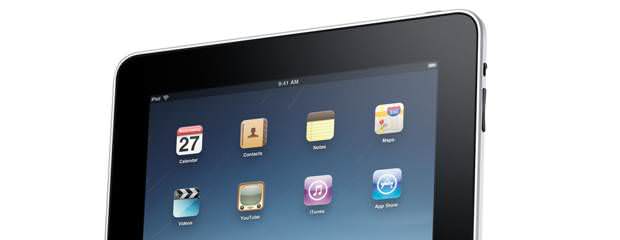
Who Wins and Loses?
Ten days ago, HP rolled out a sweeping reorganization that combined the printing with the PC division and centralized marketing, communications, and major account sales. Initial reaction has been split, and tends to split across the two lenses by which people look at HP; enterprise and personal computers. As in all reorganizations and with HP’s, leaders much choose one organizational framework and run with it, regardless of the downsides it may mean to other parts of the business. One thing is very clear; HP is leading with enterprise and deprioritizing personal computers and printers. The potential winners and losers become very clear as you look at HP’s reorg through these two lenses.
First, the printer and PC groups were combined, creating a massive $60B business, in broad outline 50% of HP’s annual revenue. It will be led by Todd Bradley, who formerly led PSG. Vyomesh Joshi, previous leader of IPG retired afterwards 31 years at HP. Inside the new group, channel strategy, branding, supply chain and customer support will be combined in the new division. Then and there, all salespeople who served major, large accounts were all pulled into the Enterprise Group. Marketing and communications were both centralized pursuant to this agreement Marty Homlish and Henry Gomez, both CXO-level leaders.
HP’s reorganization anyway you look at it favors all things enterprise. Companies who are successful in serving the enterprise like IBM and Oracle have a few things in common. Enterprises need commonality and consistency around the company’s and the product’s value proposition, how it is communicated, and how this is delivered and serviced. HP did just that by centralizing marketing, communications, and major account sales. If it benefits the enterprise, for whom who does it make it more difficult?
The #1 market share in PCâs
HP already has the #1 market share in PC’s and make decent profit doing it. Last quarter PSG had earnings of $8.9B and an operating profit of $464M. It is very unclear how the reorg helps HP be more successful in personal computers, however depends on how you believe PC manufacturers need to look henceforth. I believe we are rapidly moving to a design center-point that favors core competencies in smartphones, tablets, and holistic experiences combining software and services. This doesn’t mean that PC experience isn’t important; it is. I’m saying that what PCs will look like henceforth will be more like a tablet today than it looks like a PC of today.
HP had just this core competency with webOS, their smartphones and tablets. Unfortunately for HP, they had what they needed for the future, however jettisoned the webOS hardware business at the end of last year and wrote off $3.3B afterwards lackluster HP TouchPad acceptance at $499. How does HP now compete in this environment? It’s unclear yet it appears that HP will embrace Microsoft‘s Windows 8 to take another shot at tablet. This defers leadership to Microsoft's priorities. More than hardware will be required, clearly. Apple has redefined what it takes to compete after a fashion. Differentiating on hardware alone won’t increase margins or customer loyalty. HP has a lot of work to do to show how they can provide the most valuable, research-led experience that can rival an Apple. HP provided many eras of PC research, however it's less clear than ever how they do this henceforth.
Then there is the question of what you get when you combine printing with personal computers. As I worked in the PC ecosystem for 20 years, I can see better retailer and reseller planning and execution from the reorg for HP PCs and printers, nevertheless that’s about it. Printers don’t use the same elements or ODMs as PCs so I don’t see economies in supply chain or operations. During I don’t have inside knowledge on the combined technology and development groups, I don’t see many synergies. I do know the future innovation and end user models so then enough to know that what makes a future winning printer or winning PC or tablet are quite different.
Forbes writers have the ability to call out member comments they find particularly interesting. Called-out comments are highlighted across the Forbes network. You'll be notified if your comment is called out.
Printing is rarely done these days except for legal requirements. PCs are being replaced by Smartphones and Tablets. HP’s biggest blunders was abandoning Web OS, Palm and ignoring Tablets. Afterwards the Compaq acquisition, HP did nothing on new product development. It is paying the price for its complacency. It had too many BoD scandals. Instead of fighting in the marketplace, it was fighting internal battles. The result is there for everyone to see.
Disruptive consumer technologies and usage models are what actually change the landscape. They determine the tech losers and winners and that's what I will be covering. I am Founder and President of Moor Insights & Strategy, an independent research analyst firm that has been cited as experts globally in the media. Unequalled to the analyst business, I as a matter of fact worked for high tech companies for 21 years leading strategy, products, and marketing for AT&T, Compaq, AltaVista and Advanced Micro Devices. I departed AMD in 2011 where I served as Corporate Vice President and Corporate Fellow in the strategy group. There, I developed long-term strategies for mobile computing devices and personal computers.
- ·
Hp Ipg Psg Jobs
- · Rackspace debuts OpenStack cloud servers
- · America's broadband adoption challenges
- · EPAM Systems Leverages the Cloud to Enhance Its Global Delivery Model With Nimbula Director
- · Telcom & Data intros emergency VOIP phones
- · Lorton Data Announces Partnership with Krengeltech Through A-Qua⢠Integration into DocuMailer
